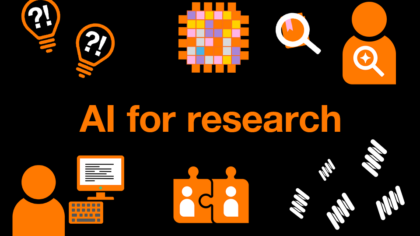Let's Talk Tech: Orange Research – AI, Cybersecurity, and Networks of the Future
How does Orange combine fundamental research and innovation? From cybersecurity to AI ethics, Lyse Brillouet, Director of Research at @Orange, and three experts discuss their most promising projects in the ParlonsTech podcast on the eve of #OrangeOpenTech.
Listen to the podcast




AI and cognitive sciences: can AIs be endowed with a human-like ability to generalize?
Read the article
Seeking an ideal blueprint: the quest to deploy generative AI in companies
Read the article

